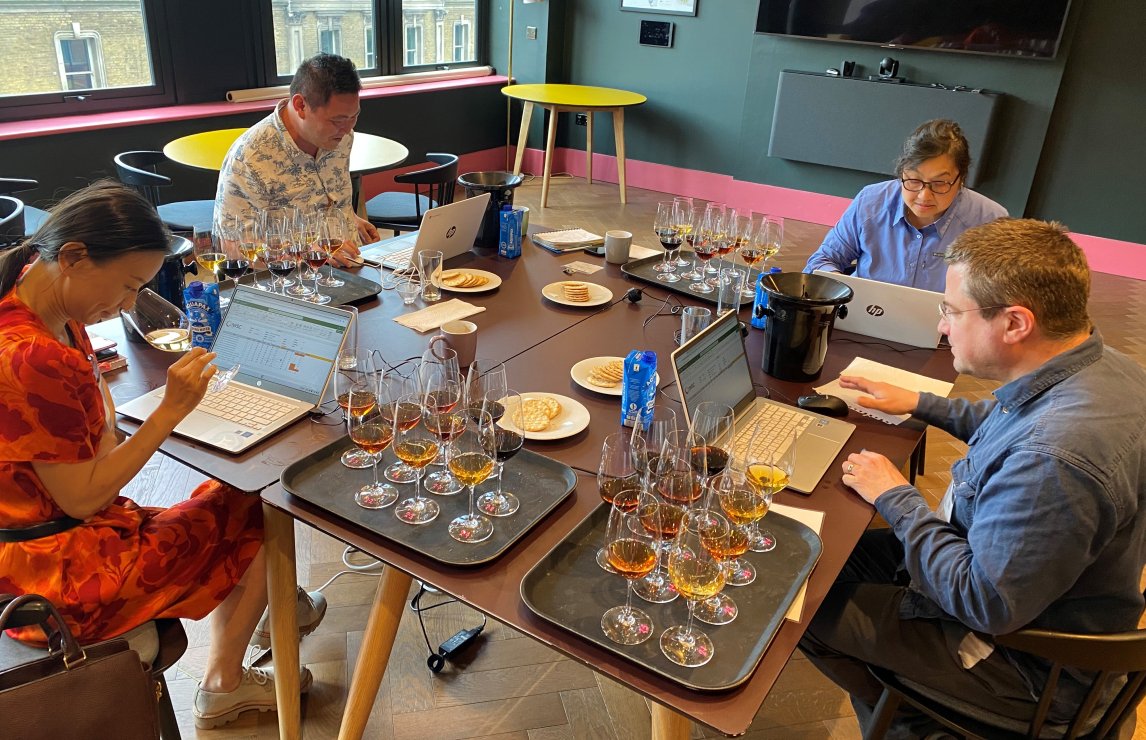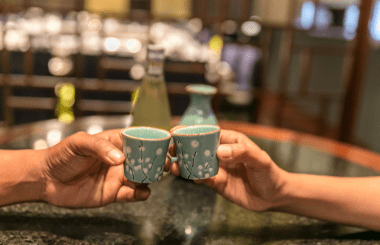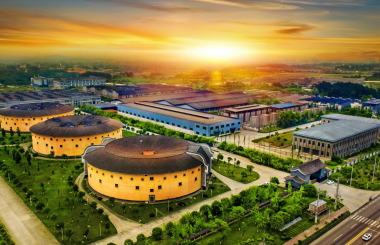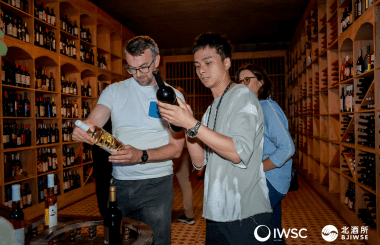2023 Huangjiu Judging: deliberations from our judges
On Monday, 19 June the IWSC held the first-ever huangjiu awards in Europe, our international experts tasted over 70 samples of this ancient Chinese drink. We caught up with our judges to hear about the highlights of the tasting and the unique flavour profile of huangjiu.
“The variety of huangjiu which we tasted today was great. It was certainly a very interesting and insightful tasting of this unique drink which is rarely found in the UK”, said Janet Wang, IWSC judge, wine writer and consultant to the Chinese wine industry. Marie Cheong-Thong, IWSC judge and board director of the British Sake Association agreed: “It was our first professional tasting of huangjiu. We are very lucky, that the IWSC received this impressive range of huangjiu entries.”
Made from fermented grains, primarily glutenous rice, huangjiu has been produced in China for several millennia. It is one of the country’s most popular beverages, as well as a part of its rich cultural heritage. Nevertheless, huangjiu is not widely exported and remains relatively unknown to the Western world.
For the judging, the huangjiu samples were split into several flights by age, from non-vintage drinks to 15 to 20-year-old entries. The judges got to taste a variety of huangjiu styles - dry, medium dry, medium sweet and sweet styles. Regardless of the sugar level, in all entries, the judges were primarily looking for a balance between sweetness, acidity and umami.
“What I had in mind was a combination of factors: an expression of the flavours that come from rice, like some richness, the umami, the kind of toasty flavours; and then an interaction between that and whatever sugar was in there to get this round, toasty flavour. And the best examples of huangjiu we tasted today had everything in harmony,” said Antony Moss MW, IWSC judge and Qualifications Director for the WSET.
Speaking of the particular styles of huangjiu, our judges mentioned that dry and medium-dry entries performed best. As for the age, the judges felt that the flights of 5 to 9-year-old and 10 to 14-year-old huangjiu offered good consistency along with the complexity of flavours. When it came to the older bottles, their quality was less consistent, our judges revealed. That said, two golds went to no-age-statement huangjiu which the judges described as ‘intense and structured’ with a great balance of umami and acidity.
Overall, the judges were impressed with the flights of huangjiu tasted, which is confirmed by its medal performance – 6 gold, 24 silver and 27 bronze medals were awarded, full results to be announced on 26 June.
There is certainly a niche for this unique drink in the UK and internationally, said the judges, although it will take time to familiarise consumers with it. “Huangjiu is different from sake in the sense that it is aged, but in terms of production, it is on the same line, where you have the rice saccharification enzyme, and you've got the yeast and a good source of water. The rice obviously is different. It's glutinous rice, as opposed to table rice used for sake. So, in that sense, there’s space in the market for huangjiu we believe. The flavour profile is unusual, but I find it easier to drink than, for instance, koshu – aged sake,” said IWSC judge Marie Cheong-Thong.



